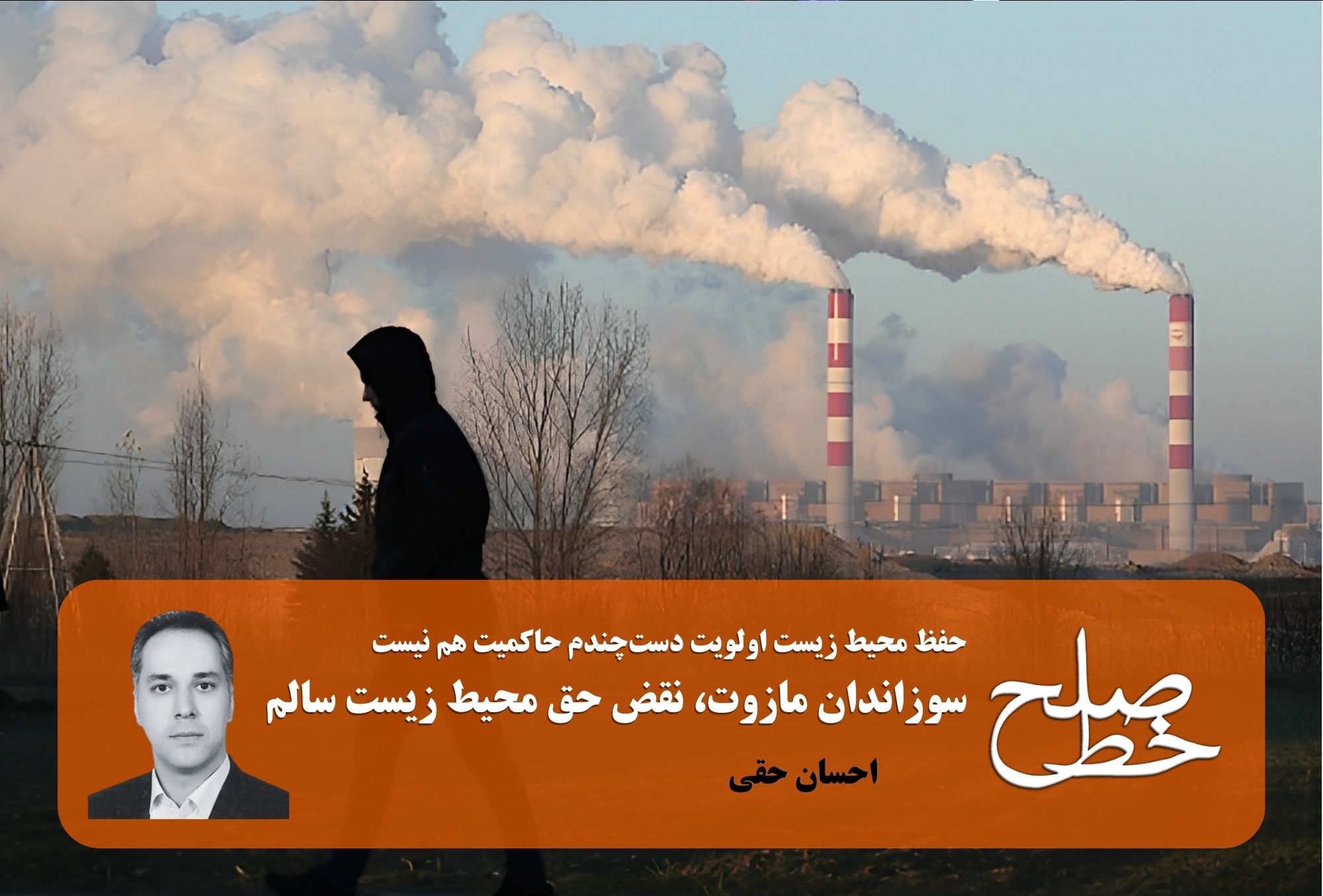
Burning diesel, violation of the right to a healthy environment / Ehsan Haghi
The right to a healthy environment is one of the examples of human rights that legal experts in this field consider as part of the third generation of human rights. According to the “United Nations Conference on the Human Environment” statement, adopted on June 16, 1972 in Stockholm, Sweden, the preservation of the human environment and ensuring access to a healthy environment for humans, as well as promoting and encouraging environmental activities at the international and regional levels, and the development of international laws and treaties to control pollution and destruction of the environment caused by human activities are among the goals of the United Nations Environment Programme. The first principle of this declaration states: “Human beings have the fundamental right to freedom, equality, and a suitable living environment that allows them to live with dignity and happiness. They are officially responsible for protecting and improving the environment for present and future generations.”
In the legal system of Iran, laws and regulations have been established to protect the environment and provide the necessary legal tools to achieve this goal. This includes the highest level of laws, namely the Constitution, which states in Article 50: “In the Islamic Republic, protection of the environment, which must be conducive to the growth of social life for today’s and future generations, is considered a public duty. Therefore, economic activities and others that result in environmental pollution or irreparable damage are prohibited.” In line with this collective duty, laws have been enacted by the legislative branch, including the most important ones such as the Environmental Protection and Improvement Law (approved on 28 March 1974 with subsequent amendments), the Hunting and Fishing Law (approved on 16 March 1967 with subsequent amendments), and the Clean Air Law (approved on 25 April 2017) in different periods. The Environmental Protection Organization, which operates under the supervision of the Supreme Council of Environmental Protection according to Article
A brief look at the numerous rules and regulations contained in these laws shows that the legal system in Iran currently has the necessary legal tools to provide a healthy environment for its citizens and prevent damage to the environment. However, what is seen in practice and on the ground tells a different story. From deforestation and destruction of habitats to pollution of water sources and gradual destruction of remaining resources, and many other examples of environmental damage that are constantly increasing and alarming, even though we hear from official sources that they are trying to prevent it, all indicate that the story of the environment in Iran requires a solution beyond the law, and that solution is “rule of law”; the missing link in governance in Iran.
In this article, which does not have enough opportunity and ability to address even a few examples of environmental degradation in Iran, a brief look at the report of the Ninety Commission of the Islamic Consultative Assembly on air pollution will reveal a detailed account. In one part of this report, it is stated: “The Ministry of Oil has not used the necessary standards in the use of diesel fuel in power plants, and the country’s produced fuels, including gasoline, gas oil, furnace oil, and white oil, have not been supplied in accordance with the approved national standard.” And it continues: “The Ministry of Energy has not only not used renewable energy sources to meet the country’s electricity needs, but also due to the special circumstances of the country’s sanctions, the consumption of diesel fuel is increasing, and according to the announcement of the Environmental Protection Organization’s Climate Center, 14 out of 16 power plants in the country use diesel fuel.” Other parts of this report also indicate that responsible agencies
The consumption of Mazut (furnace oil) mentioned in this report and even declared to be on the rise, is one of the indications that the preservation of the environment and providing a healthy environment for citizens is not among the top priorities of the government. This is while the consumption of this hazardous, harmful and deadly substance has reached such a critical state that the Special Envoy of the United Nations for Human Rights and the Environment has issued a warning: “Iran is using Mazut, one of the dirtiest fuels, to generate electricity. This results in the production of a massive amount of air pollution and the poisoning of millions of people in Iran, violating their human rights, including the right to a healthy environment. Iran must stop burning Mazut.”
Unfortunately, all of these warnings and all of those shortcomings and faults in the implementation of laws and regulations that could have – and still can – prevent the current disastrous environmental situation in Iran and the increasing harm to citizens deprived of legal protection, are being ignored by making excuses and prioritizing interests. This is causing the right to a healthy environment, like other human rights, to be distorted and made difficult to obtain within the framework of Iran’s legal system, almost impossible to achieve.
Tags
Burning diesel fuel Diesel Ehsan Haghie Environment Healthy environment Islamic Consultative Assembly Monthly Peace Line Magazine peace line The third generation of human rights.